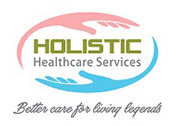From the beginning of human civilization, communication has always been a key factor in survival and thriving. Whether it’s for education, career advancement or personal relationships, speech plays an essential role in connecting us to others. However, for some individuals, struggles with effective communication can lead to frustration and emotional distress. This is where speech and language pathologists (SLPs) come to the rescue. These trained professionals specialize in diagnosing and treating speech disorders, ensuring that those with communication challenges can recover and thrive.
Importance of Speech In Society
In countries like Pakistan, speech therapy has become more accessible with advanced techniques and certified professionals available in cities like Lahore and beyond. Speech and language pathologists are helping people of all ages recover from speech disorders. By using targeted speech language therapy, they assist individuals in overcoming difficulties that impact their ability to communicate effectively. After all, clear and confident communication is crucial to success in every aspect of life.
Why Speech is Essential in Our Lives?
Speech and language are the foundation of human interaction. Without effective communication, a person may struggle to excel in education, develop career prospects and build meaningful relationships. When someone struggles with speech, they often feel left out or misunderstood. Speech disorders can affect not only a person’s ability to speak but also their confidence and emotional well-being. This is why speech and language pathologists are so vital because they help individuals regain their communication skills, boosting their self-esteem and allowing them to participate fully in society.
In today’s fast-paced world, effective communication is often the key to success. Whether in the classroom, workplace or social settings, people tend to listen to those who express themselves clearly. Without proper communication abilities, a person’s ideas can go unheard, leading to isolation and a lack of opportunities. Fortunately, speech therapists are equipped with the knowledge and skills to help individuals overcome these barriers and succeed.
What is Speech Therapy and Who are Speech and Language Pathologists?
Speech therapy is a specialized field designed to treat and rehabilitate individuals who struggle with speech and language issues. Speech and language pathologists (SLPs) are the trained professionals who provide this essential care. They help individuals recover from a wide range of speech disorders, using various techniques to improve sound production, pronunciation and overall communication skills.
These experts hold degrees in communication sciences or related fields, and their work spans across various conditions, from developmental speech disorders in children to speech impairments caused by neurological conditions in adults. A speech pathologist works with patients to address challenges with articulation, fluency, voice quality and more, ensuring that each person can communicate as effectively as possible.
Do Speech Disorders Really Exist?
Yes, speech disorders are common, affecting a significant portion of the population. While children are more likely to experience speech challenges, adults can also develop speech disorders due to various factors, such as accidents, neurological conditions or other health issues that impair the organs involved in speech. Fortunately, with consistent speech language therapy, many individuals can regain normal speech functioning.
In children, developmental speech disorders often arise during early childhood, especially between the ages of 3 to 6 years, when speech and language skills are developing. Disorders such as stuttering, difficulty articulating words, or issues with fluency are often seen during these critical developmental years. However, early intervention with speech therapy can dramatically improve outcomes for these children, helping them overcome their challenges more effectively.
Age Groups Most Affected by Speech Disorders
While speech disorders can affect individuals at any age, children between the ages of 3 and 6 are most susceptible. These are the developmental years when children learn to speak, understand language, and interact with others. Speech issues in this age group can delay social, cognitive, and educational development if not addressed early on.
Children with conditions like Autism Spectrum Disorder (ASD) or Attention Deficit Hyperactivity Disorder (ADHD) are also at higher risk of developing speech disorders. The good news is that with early intervention through home care or home healthcare, children who receive speech therapy in their formative years are more likely to overcome their challenges and improve their communication skills.
Signs That Indicate Speech Disorders in Children
Parents should be vigilant in identifying signs of speech disorders in children. Early detection is critical in ensuring timely intervention. Below are some common signs that may indicate a speech disorder:
- Under the age of 3 months: The child struggles with smiling or playing with others.
- 4-7 months old: The child does not make sounds or babble.
- 7-12 months old: The child fails to make gestures like waving or pointing and shows minimal vocalizations.
- 7 months-2 years old: The child has trouble understanding or responding to simple instructions.
- 12-18 months old: The child uses very few words.
- 2-3 years old: The child struggles to communicate or play with others.
Additionally, if a child shows signs of stuttering, has an inconsistent voice quality, or displays structural issues in their mouth or ear infections, it could indicate an underlying speech disorder. Consulting a speech pathologist early can help diagnose and treat these conditions before they lead to more serious developmental setbacks.
Types of Common Speech Disorders
Several types of speech disorders affect individuals of all ages. Below are some of the most common ones:
- Articulation Disorder: This occurs when a person has difficulty making certain sounds correctly. For example, a child might say “twee” instead of “tree” or “th” instead of “s.”
- Dysarthria: This condition affects the muscles used for speech, leading to difficulties with voice control, pitch and speed. It often results from neurological damage.
- Receptive Disorder: This disorder affects the ability to understand spoken language. Individuals with receptive disorders may also struggle to express themselves properly.
- Resonance Disorder: Individuals with resonance disorders may have an overly nasal-sounding voice due to obstruction in the oral or nasal cavities.
- Apraxia: Apraxia is a motor disorder that affects a person’s ability to execute speech movements, even though they understand what they want to say.
- Orofacial Malfunction (OMD): OMD refers to problems with the development of the mouth’s muscles and bones, which can interfere with speech, eating and even breathing.
The Role of Speech Therapy in Holistic Healthcare
Incorporating speech therapy into a holistic healthcare plan is critical for individuals with speech and language challenges. Whether through home healthcare or in more structured settings like a nursing home, speech therapy is a powerful tool in improving a person’s quality of life. By addressing communication issues, speech language pathologists contribute to a person’s overall well-being, helping them engage more fully in society, build relationshipsand improve mental health.
For elderly individuals in nursing homes, speech pathologists play a crucial role in enhancing communication abilities, especially when cognitive decline or physical impairments affect speech. Early intervention, whether at home or through specialized care facilities, allows individuals of all ages to communicate more effectively, leading to a more fulfilling life.
Conclusion
In today’s world, the ability to communicate is vital for success and well-being. Speech and language pathologists are invaluable professionals who provide expert care to those with speech disorders, ensuring they regain the skills needed to communicate clearly and confidently. From children to adults, and even seniors in nursing homes, speech therapy can make a world of difference in overcoming challenges and promoting a healthier, more connected society





 Reach us on WhatsApp
Reach us on WhatsApp